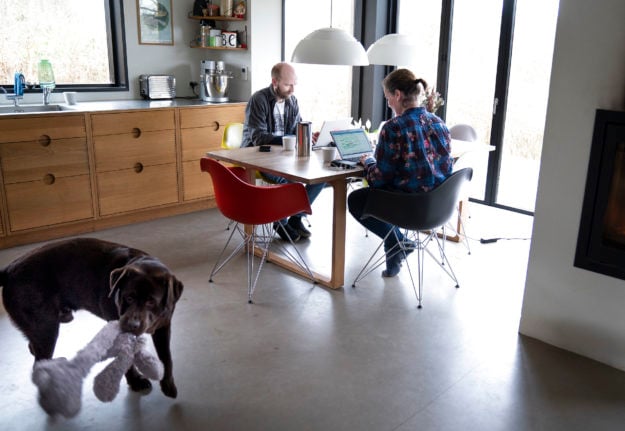The Danish Chamber of Commerce said that in an average company, 16 percent of working hours were now completed at home, as opposed to 8 percent before the pandemic.
“I think that both managers and employees have found that it works. It provides flexibility for employees – both in terms of transport time, work-life balance, and the way we work if we want to immerse ourselves in a task,” Pernille Taarup, chief consultant within HR and management at the Danish Chamber of Commerce, said.
“Corona forced many of us to stay at home. And it turned out that productivity was just as high at home as when you were at work, and that employees were happy to work at home part of the time”, Taarup added.
The survey was sent to members of the Danish Chamber of Commerce, which represents 18,000 member companies and more than 100 industry associations.
The results showed that two out of three companies offer a work from home option to employees. On average, employees choose to work from home twice a week.
According to the analysis, working from home is more widespread in larger companies than in small ones, especially in the IT and telecommunications and consulting industries.
In the IT and telecommunications industry, 43 percent of working hours are completed at home. In the consulting industry, it is 24 percent.
Most of the companies that do not offer working from home options, explain that it is because the tasks can only be carried out physically in the company building.
According to Taarup, it is difficult to predict whether the number of people working from home will increase even more.
“Many companies are in the process of finding out what works for them and what the balance should be”, she said.



 Please whitelist us to continue reading.
Please whitelist us to continue reading.
Member comments